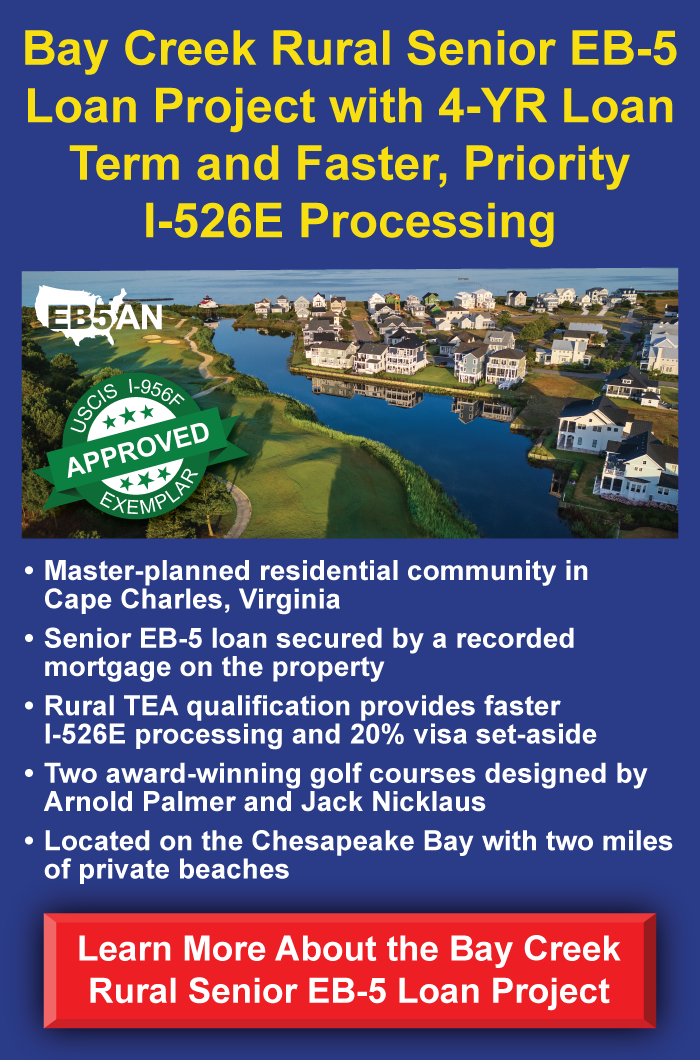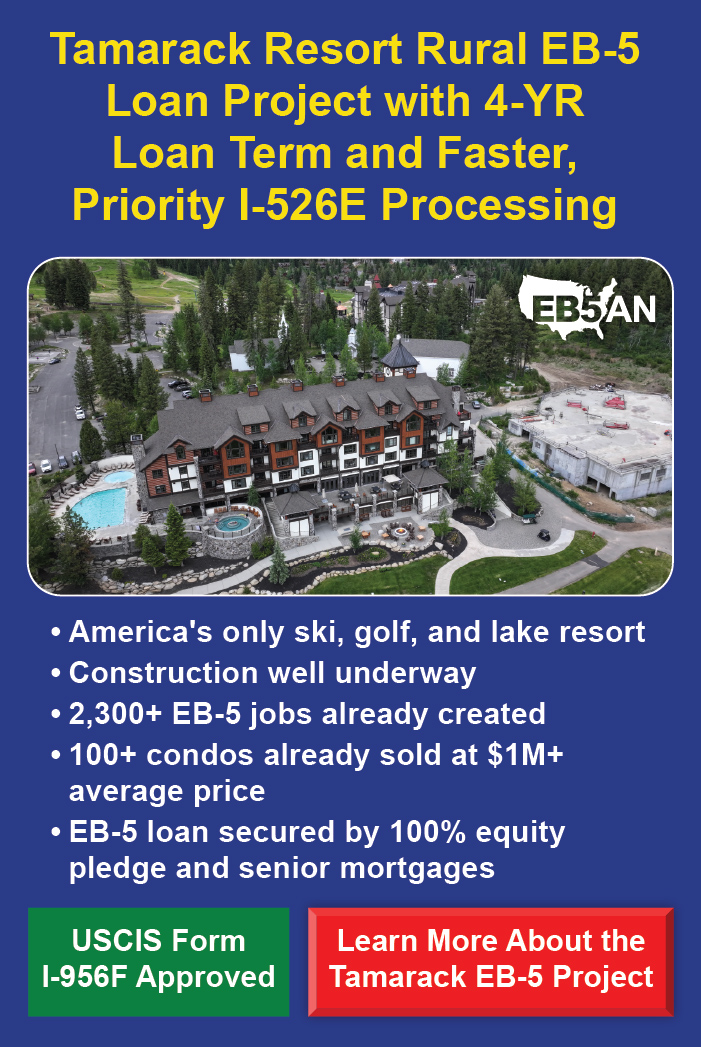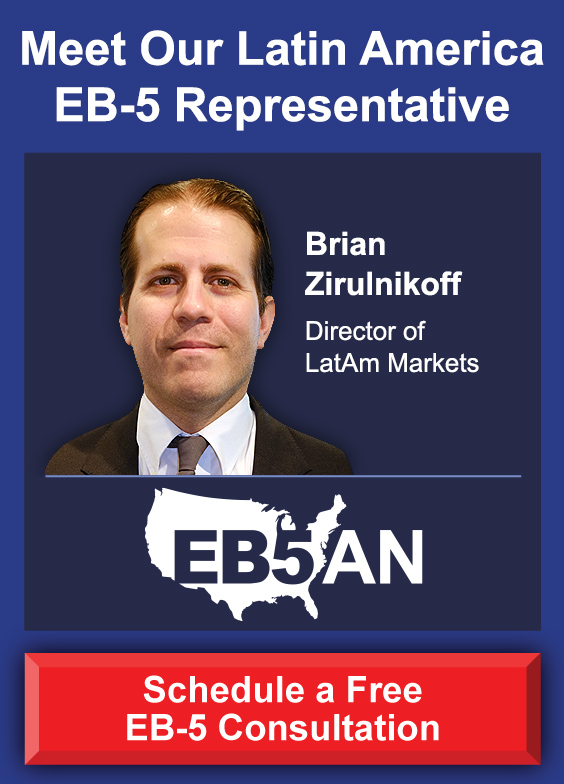
The Hong Kong Autonomy Act is a sanctions package designed to penalize banks that conduct business with Chinese officials and was recently passed in the United States by Congress. These measures were a response to China’s enactment of the new Hong Kong security law—a piece of Chinese legislation that governing bodies across the globe condemn as an offense against democratic freedoms. While Congress’s actions are a solid counter-message to Beijing, there are a myriad of tools available that haven’t yet been used by the U.S. federal government. One is the EB-5 Immigrant Investor Program.
What the EB-5 Program Does for the U.S.
The EB-5 Immigrant Investor Program is a U.S. economic development initiative introduced in the 1990s Congress that, today, is a driver of billions of dollars in EB5 investment in U.S. markets across the country. This investment-for-residency program focuses on the needs of rural and high-unemployment areas. Eligible foreign investors can obtain U.S. green cards for themselves and their qualifying family members by infusing minimum required EB-5 investment capital amounts ($1.8 million, or $900,000 when investing in a targeted employment area, or TEA) in program-approved projects in line with EB-5 guidelines.
According to 2019 study data by Economic & Policy Resources, the EB-5 program garnered more than $55 billion in EB5 investment capital and was responsible for creating more than 355,000 jobs in 2019. As the Congressional Budget Office attests, the program’s most appealing aspect is that it operates with “no significant cost to the federal government” and at no cost to the taxpayer. This is because the program is designed such that it is EB-5 investment participants who pick up the tab.
U.S. Congress’s Untapped Potential
The current political climate in China creates the perfect opportunity for the U.S. Congress to tap into the potential synergy between Hong Kong and the United States. Further reformation on the EB-5 program to make it easier and more attractive for Hong Kong residents to invest will not only help them escape the heavy hand of the Chinese government but also aid the U.S. economy in job creation at a time when the country needs it most.
This is a win-win scenario that could positively impact both Hong Kong and the United States if Congress can enact consensus-based reforms quickly. Congress has the potential to drive home its democratic message to Beijing, draw in Hong Kong’s best and brightest, and stimulate the economy through the creation of thousands of new U.S. jobs all in one fell swoop.
Proof of Concept for a Hong Kong Focus
The United States isn’t the only country willing to support Hong Kong’s efforts. There are a number of nations with competitive investment programs around the globe helping the region’s people, including the United Kingdom and Canada.
The UK Grants Hong Kong Residents Renewable Visas
Approximately 350,000 Hong Kong residents are reported to currently hold a British overseas passport, and more than two million more are eligible to apply for one. British Prime Minister Boris Johnson made an announcement that Hong Kong residents who wish to apply may be granted renewable visas. Holding a renewable visa would allow them to hold UK employment and would set them squarely on a path to citizenship in the UK.
Canada’s Foresight Has Garnered a Return in Spades
More than two decades ago, Canada prepared for the end of British rule in Hong Kong by using its residency-by-investment program as a welcome mat for entrepreneurs and business professionals from Hong Kong. The results?
- Billions of foreign investment dollars that literally and figuratively transformed Vancouver and other areas of British Columbia into thriving international hubs
- An entire generation of talented and well-educated innovators and job creators who continue to positively contribute to the country’s economic growth
So why isn’t the United States following suit? What are U.S. officials currently doing instead? Let’s take a look at why the U.S.’s EB-5 Program isn’t currently the most attractive offer on the table in Hong Kong.
What’s Happening with EB-5-Related Legislation
It’s worth repeating: the EB-5 program isn’t the most attractive offer on Hong Kong investors’ tables right now. And now, in 2020, the federal government has made the U.S. option even less attractive. President Trump signed off on the Hong Kong Normalization Order—a policy for the United States to suspend or even eliminate the preferential treatment of Hong Kong over mainland China. This made it even more difficult for Hong Kong residents to participate in EB5 investments than before.
The July 2020 executive order has subjected Hong Kong EB-5 investment applicants to the extensive backlogs Chinese investors have been dealing with for years, likely adding years to Hong Kong investors’ EB-5 journeys. The United States is already host to more Hong Kong immigrants than any other country outside of mainland China and is a leading source of inbound EB-5 investment capital. Yet, it is still only a fraction of Hong Kong’s financial resources.
Common Sense Reforms to Strengthen EB-5 Appeal
It only makes sense to better EB-5 investment opportunities for Hong Kongers. The only way forward in reinvigorating interest among Hong Kong investors is the repeal of counterintuitive actions such as the Hong Kong Normalization Order, as well as further reform. If not, the United States can only expect to lose desperately needed Hong Kong investment capital and talent to more attractive markets like Canada, Singapore, the United Kingdom, and Australia.
Common sense reforms from Congress are a viable way to avoid this. Two creative ideas floating around the EB-5 community are as follows:
- Enact a requirement for Hong Kong EB-5 investment capital to apply only to rural areas or targeted employment areas (TEAs). This would spur on economic development in regions where it’s needed most and avoid investment concentration issues.
- Establish a temporary fast-track for processing Hong Kong investors. Exempt them from the annual visa caps that would normally apply during such this urgent time in Hong Kong. This is the type of reform that could upstage competitive offerings.
What’s most heartening is it seems that there are congressional figureheads who have suggested they are poised to support any efforts to assist Hong Kong. Specifically, they support reforms, sanctions, and aspects of a recovery bill that address how the EB-5 program would reinforce cornerstone principles of democracy, economic opportunity, and freedom, sending a very strong message to China and the rest of the world.











